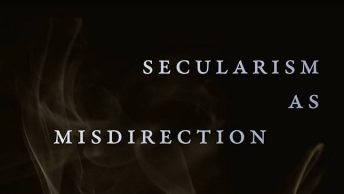Amendment) Act, 2016 (‘Amendment’) has been passed by both Houses of the
Parliament. This important Constitution Amendment has been passed to introduce
the Goods and Services Tax (GST) – a tax system designed to turn India into a
single common market. The GST will subsume most indirect taxes and is expected
to eliminate the cascading of taxes. Readers may refer to this FAQ released by the Finance Ministry for a brief explainer on
GST.
constitutional issues raised by the Amendment. The bill in its latest form is not
available presently. Readers may instead view the version passed by the Lok Sabha, along with the amendments made in the Rajya Sabha.
and the working of the GST Council. The GST Council is a council envisaged
under the Amendment, with powers to ‘recommend’ (it is unclear if the
recommendations are binding) tax rates, goods and services to be to subjected
to or exempted from GST, taxes to be subsumed under the GST, matters of
apportionment, etc. The Council consists of the Union Finance Minster, Union
Minister of State for Finance/Revenue, and Finance Ministers of each State
(State includes Union Territories with Legislatures, like Delhi).
the GST Council is to be approved by a majority of at least 3/4th of
the weighted votes of the members.
The vote of the Central Government has a weightage of 1/3rd of the
votes; and votes of the State Governments have a weightage of 2/3rd
of the votes. As Alok Prasanna points out here, this effectively grants the Central Government a veto over
the fiscal policies State Governments, thereby violating the fiscal autonomy of
the states. However, it is important to remember that even the State
Governments have a veto over the Centre – in fact, if a little over 3/8th
of the State Governments present and voting dissent, no decision can be taken
by the GST Council. Of course, no individual
state will have a veto, and fiscal policies can be imposed on the
dissenting state government.
dispute resolution mechanism. Under the earlier draft of the Bill passed by the
Lok Sabha, it was provided that: “The Goods and Services Tax Council may decide
about the modalities to resolve disputes arising out of its recommendations”.
However, under the new draft, passed in both the Houses, it is mandated that a mechanism to adjudicate disputes be instituted by the GST Council. This mechanism
will apply to disputes between the Union and State(s), between two or more States,
and between Union and State(s) on one side and State(s) on the other – if it
relates to the recommendation of the GST Council or its implementation. It is
uncertain whether the GST Council will enact a delegated legislation to give
effect to such a power. Former Finance Minister Mr. Chidambaram alluded to this
concern in the Upper House, but it was not addressed. The Memorandum Regarding
Delegated Legislation provided in the Bill did not refer to any such delegated
legislation by the GST Council.
and it was raised by Mr. Chidambaram as well – is the role of Article 131.
Ordinarily, such disputes between Union and State(s) are to be adjudicated
under Article 131, which grants original jurisdiction to the Supreme Court. It
is useful to note that Article 131 begins with: “Subject to the provisions of
this Constitution…”. Perhaps it may be argued that the Amendment precludes the
operation of Article 131. Moreover, as was recently explained in the recent Delhi HC case on the powers of the Lt.
Governor, it is “only
when a legal, not a mere political, issue arises touching upon the existence or
extent of a legal right that Article 131 is attracted” (citing State of Rajasthan v. Union of India). As
Finance Minister Mr. Jaitley stated in the Rajya Sabha, the dispute resolution
clause was inserted on the presumption that disputes arising out of the
recommendations of the GST Council are political disputes, that can be resolved
internally (i.e., without reference to the judicial branch). This might be an
additional reason to preclude operation of Article 131.
always a possibility that disputes may be raised vide a writ petition under
Articles 32 and 226. The GST Council is after all a constitutional body, and
any State aggrieved by its recommendation may approach the constitutional
courts. In addition, if the dispute is referred to the mechanism instituted by
GST Council, the conclusion reached by such a body may also be challenged vide
a writ petition. Powers of judicial review under Articles 32 and 226 have been
repeatedly upheld as being part of the basic structure, and it is unlikely that
the writ jurisdiction will be affected by the Amendment.







Thaks for this informative post today GST are applicable to all business and they need to GST solution for their business. I want to suggest a GST solution that is Gen GST Software